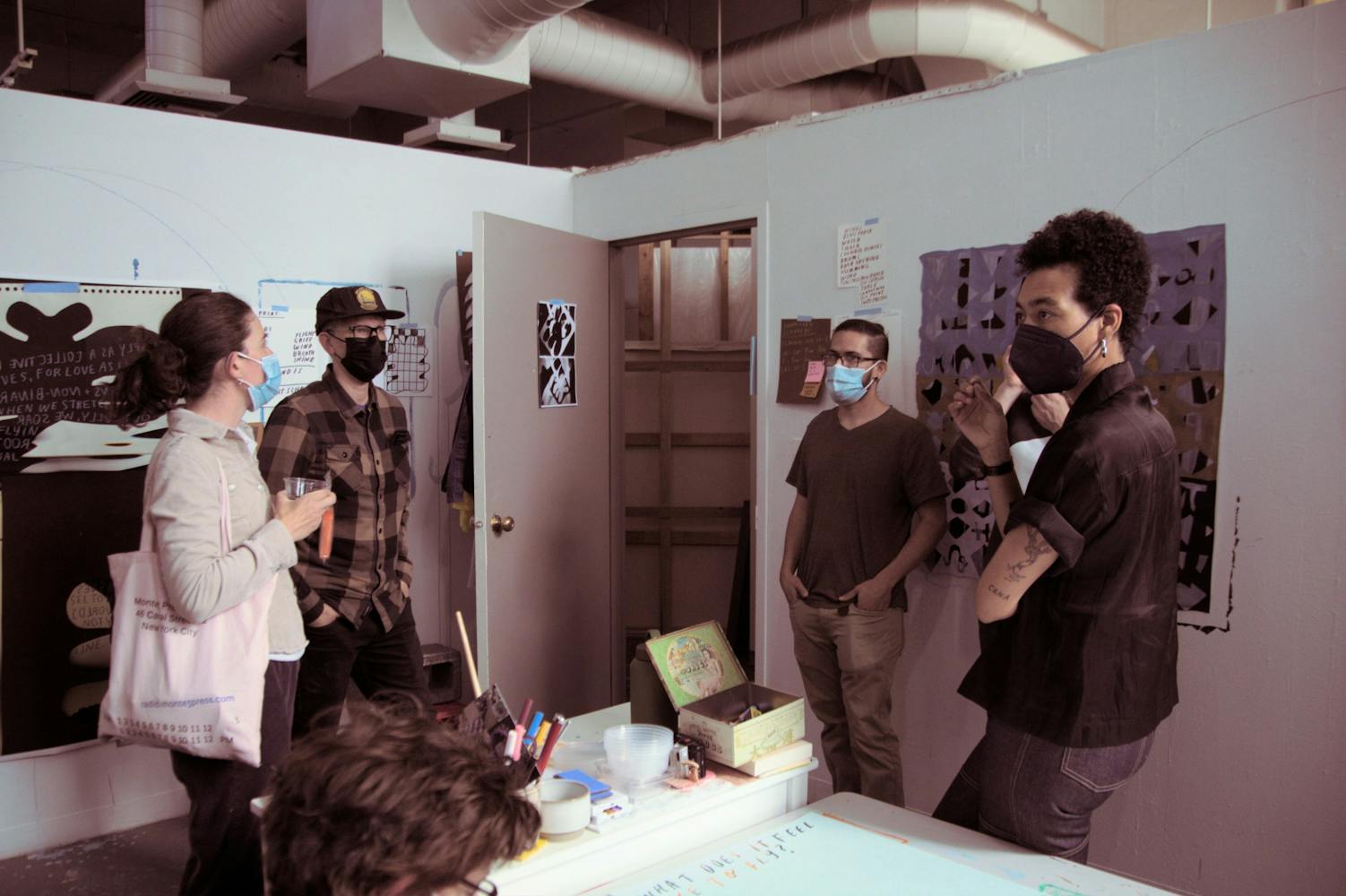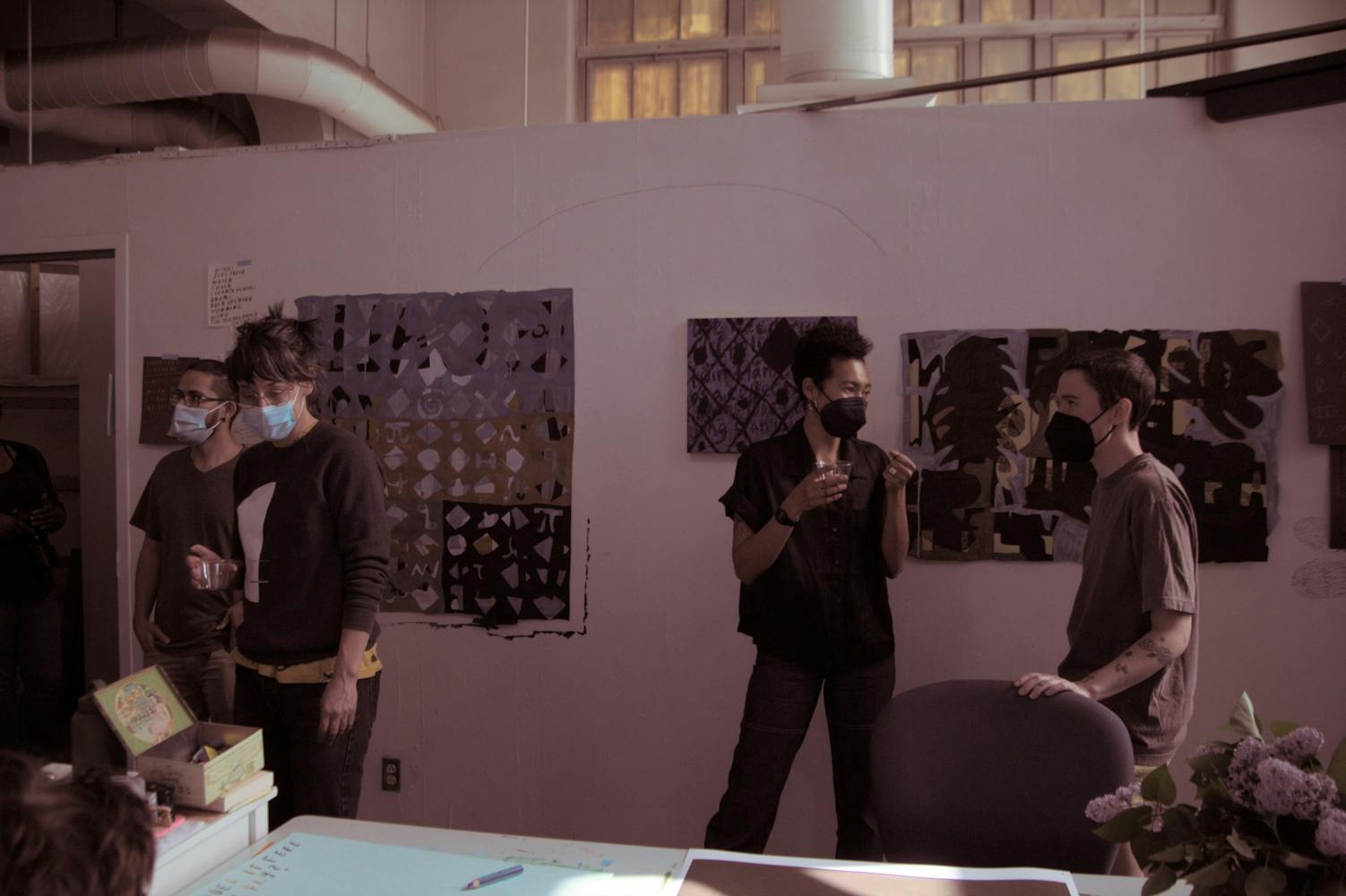Each spring the painting and drawing department hosts an “Open Studio” event where the public can enter the campus studio and observe the work that a UNM visiting artist has created over the semester, according to Amanda Curreri, an associate professor in the UNM department of fine arts.
This visiting artist program began six years ago, Curreri said, and this year’s artist is Lukaza Branfman-Verissimo.
“My work is rooted in storytelling and telling stories about survival — primarily of black, brown, Indigenous, queer, trans, gender-nonconforming and two-spirit folks. It’s rooted in how we amplify and tell stories of marginalized bodies in different ways,” Branfman-Verissimo said.
The artist selection is made based on a number of factors and is carefully decided each year, Curreri said.
“It’s a mix of people. You can imagine being really excited to do something like this,” Curreri said. “It’s beautifully funded. You get a house, you get a studio, you don’t teach that much, you get to really focus on your research, but people have to be available for three months. The selection process often involves that challenge.”
This year’s Open Studio was held on Friday, April 28 in the Art Annex. Branfman-Verissimo hosted the event. Branfman-Verissimo most frequent medium is print-making. They said they strive to create as a way to amplify the stories of traditionally marginalized people.
Having a practicing artist on campus is advantageous for art students, who have the opportunity to form lasting relationships with visiting artists, Curreri said.
“All of us are artists and teachers, but having someone solely focused on their research and creative process is really different,” Curreri said.
Branfman-Verissimo said their time with the UNM art department has opened new ideas for their work, including some of their ideas on storytelling.
“A lot of my inspiration shifted or expanded once I got to Albuquerque,” Branfman-Verissimo said. “Because of the location and the big sky, I’ve been thinking a lot about flight and how we tell our soaring and thriving stories as opposed to only telling the survival stories.”
The way marginalized people both endure struggles to survive and have beautiful stories of growth and success is something that Branfman-Verissimo believes is worth sharing. They believe there are many valuable ways in which stories can be shared with the world.
Individuality and expression are a large part of their work, Branfman-Verissimo said. Their inspiration also comes from activism for people facing societal maltreatment and the way that marginalization is combatted.
Get content from The Daily Lobo delivered to your inbox
“I also get a lot of inspiration from protest strategies, thinking about different ways that we express and fight for our lives,” Branfman-Verissimo said.
People within marginalized communities share their stories in different ways from those outside of their communities, Branfman-Verissimo said. Part of their goal as an artist is to come up with ways to share these stories and leave an audience with a greater understanding of the hardships that come with marginalization.
“I hope that folks take away some sort of understanding of our way of communicating,” Branfman-Verissimo said.
The key to Branfman-Verissimo’s artwork is language and communication, which is what they hope to express to their audience. Much of their work is a combination of words and symbols, like poetry in a visual form.
“I use a lot of language, both in letter forms and images that allude to stories,” Branfman-Verissimo said. “I’m always hoping that folks are taking some of the stories or ideas that are in the work and the idea that our communication preserves our histories, our memories, our thoughts, our demands.”
Branfman-Verissimo said their artwork is a significant part of them as a person and their relationship with the world around them. Sharing this artwork with others is a rewarding aspect of their creative process, and they believe “art gathers people.”
Detroit Kallunki is a freelance reporter with the Daily Lobo. They can be reached at culture@dailylobo.com or on Twitter @DailyLobo
Detroit Kallunki is a senior reporter with the Daily Lobo.








